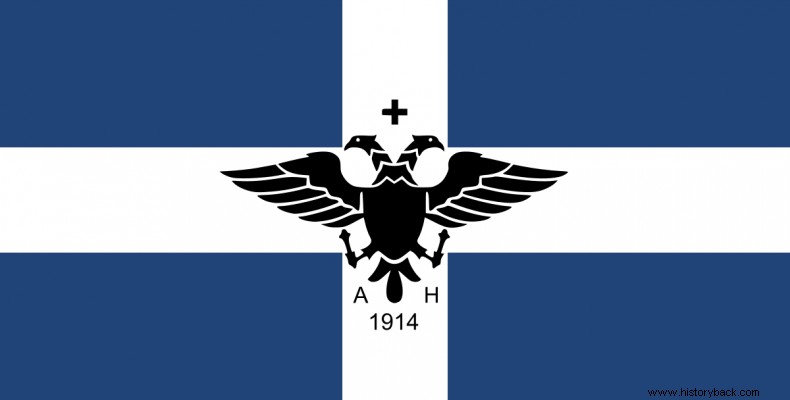
With the Treaty of London in 1913, the great powers recognized the state of Albania. With the Florence Protocol, the Greek Northern Continent was granted to the newly established state. The powers pressured Greece to cede Northern Epirus, threatening that otherwise they would not recognize sovereignty over Aegean islands. Eleftherios Venizelos respected the above agreements and even committed to the forces not to encourage any reaction of the Greek population there. However, the Northern Epirotians reacted and on February 14, 1914 they revolted.
Northern Epirotians formed a provisional government despite Greece's refusal to help. But what the Greek state did not do, hundreds of military volunteers, soldiers, but also old fighters, as well as high school students did. The military even grabbed weapons, even machine guns and cannons and joined the Northern Epirote brothers. The Greeks scored successes and with the Protocol of Corfu (March 17, 1914) they won their autonomy. However, this protocol was never implemented, as World War I broke out a few months later. Earlier, however, the Albanians, encouraged by the Turks and Italians, counterattacked. After suppressing the rebellion of the Greeks in Kortsa, they also turned against Argyrokastro.
The battle of Moni Tsepou
On April 14, the Albanians moved towards the historic I.M. Pocket after they overthrew Greek divisions. Three days later, however, they received a Greek counterattack. The Greek divisions were commanded by the honorary major (captain in reality) of the Greek Army Vlasis Karachristos. The Greeks broke through the enemy lines in the villages of Gardiki and Koroni. However, the Albanians were reinforced and counterattacked. The Greeks fought for two days but were forced to retreat, despite the efforts of Karachristos. The reinforced Albanians continued the attack and conquered the Monastery of Tsepou and reached a distance of only 5 km from Argyrokastro.
The situation was critical but with the reinforcement of the Erythrochiton corps the situation was temporarily stabilized. Although the Greek divisions were numerically outnumbered, Karachristos decided to counterattack. He knew that the recapture of the Monastery of Tsepou was of vital importance. Karachristos was an experienced and brave officer. He had started his career in the Greek Army as a non-commissioned officer. He was one of the few who were saved in the wreck of "Mavros 1897". He fought heroically in the First and Second Balkan Wars and knew how to electrify his men. When the revolution of the Northern Continents broke out, he volunteered there and undertook the formation of the Delvinos Regiment.
On April 20 the decisive battle broke out. The Albanians attempted a counterattack but were repulsed. The time of the Northern Continents had arrived. On the night of April 22-23, Karachristos and his men were ready. With a nighttime surprise attack, the Greeks broke the Albanian lines. Albanian counterattack put a lot of pressure on the Greeks and for a moment a serious danger was created. Then Karachristos rushed forward at the head of his men... The Greeks rushed forward with shouts and shouts, spreading panic among their opponents and literally sweeping them away. In less than an hour the Greeks had put the opponents to flight.
The Albanians retreated deep, leaving behind the dead and prisoners. Among the latter was an Italian officer, while Italian soldiers and Bulgarian commissars were also found dead. The Greeks pursued the enemy and on April 25 forced the Albanians to ask for an armistice. In the battle, the leader of the Red Coats, Alexandros Romas, second lieutenant Gerasimos Pneumaticatos, leader of the Independent Company of Lambovou, lieutenants Stratos and Sakellaris, second lieutenants Theodoros, Makridakis, Tagaropoulos and Costarelos distinguished themselves. The battle saved Argyrokastro but also – unfortunately temporarily – the northern continental case. The First World War, the Italian pressures, but also the disastrous National Division, resulted in the Northern Continent remaining Albanian.
PANTELIS D. KARYKAS
